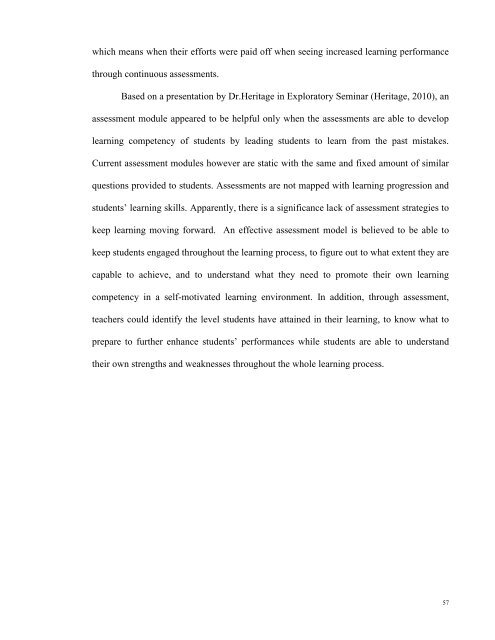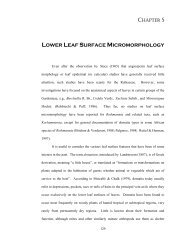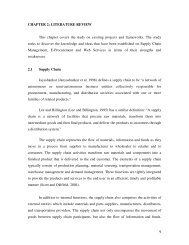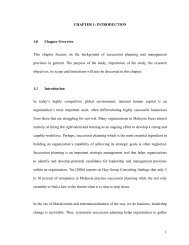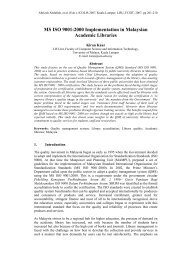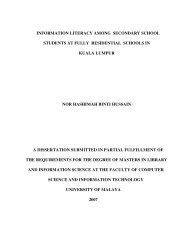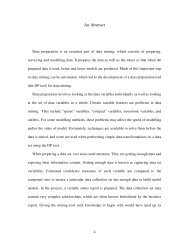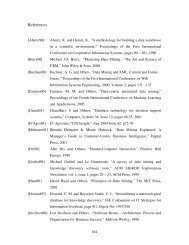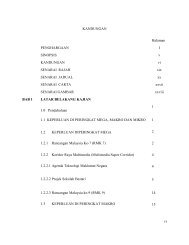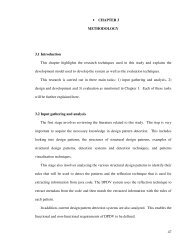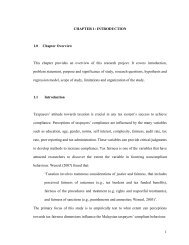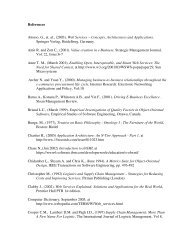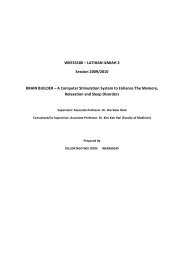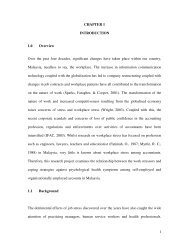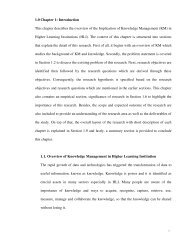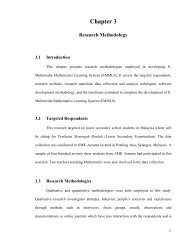Chapter 4 Data Collection, Analysis and Findings - DSpace@UM
Chapter 4 Data Collection, Analysis and Findings - DSpace@UM
Chapter 4 Data Collection, Analysis and Findings - DSpace@UM
Create successful ePaper yourself
Turn your PDF publications into a flip-book with our unique Google optimized e-Paper software.
which means when their efforts were paid off when seeing increased learning performance<br />
through continuous assessments.<br />
Based on a presentation by Dr.Heritage in Exploratory Seminar (Heritage, 2010), an<br />
assessment module appeared to be helpful only when the assessments are able to develop<br />
learning competency of students by leading students to learn from the past mistakes.<br />
Current assessment modules however are static with the same <strong>and</strong> fixed amount of similar<br />
questions provided to students. Assessments are not mapped with learning progression <strong>and</strong><br />
students’ learning skills. Apparently, there is a significance lack of assessment strategies to<br />
keep learning moving forward. An effective assessment model is believed to be able to<br />
keep students engaged throughout the learning process, to figure out to what extent they are<br />
capable to achieve, <strong>and</strong> to underst<strong>and</strong> what they need to promote their own learning<br />
competency in a self-motivated learning environment. In addition, through assessment,<br />
teachers could identify the level students have attained in their learning, to know what to<br />
prepare to further enhance students’ performances while students are able to underst<strong>and</strong><br />
their own strengths <strong>and</strong> weaknesses throughout the whole learning process.<br />
57


